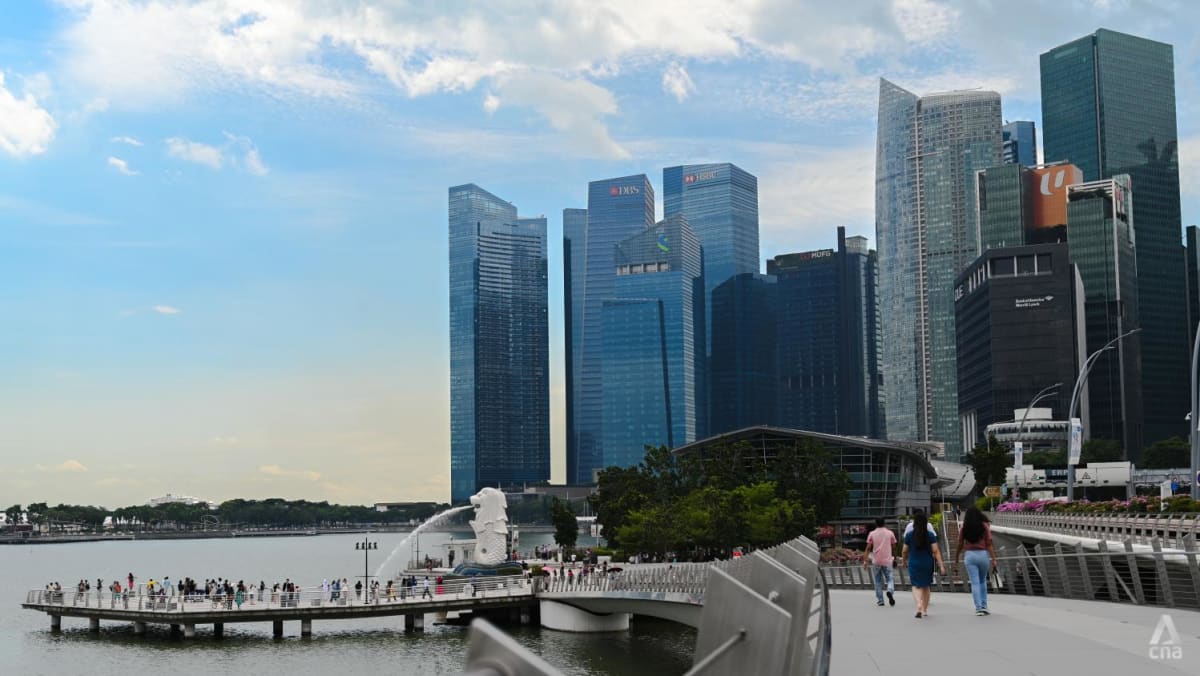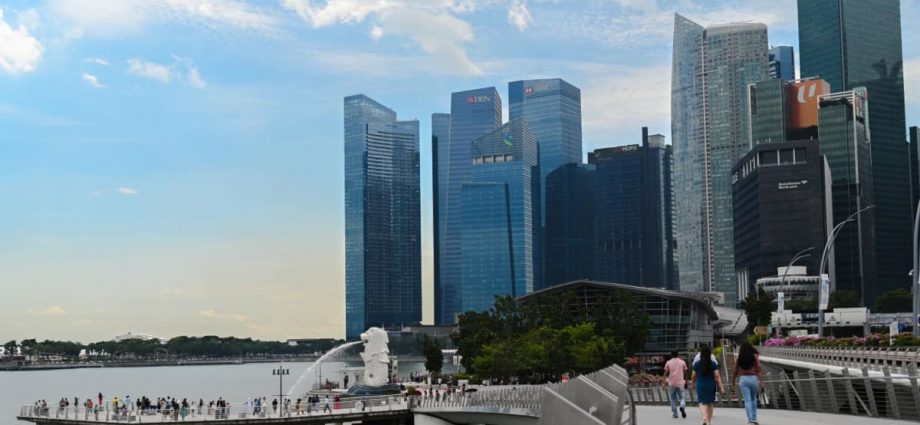
SINGAPORE: With “major uncertainties and downside risks” in this year’s global economic forecast, Singapore will do more to boost local businesses and encourage innovation, announced Deputy Prime Minister Lawrence Wong on Tuesday (Feb 14).
This includes topping up the National Productivity Fund with S$4 billion, as well as introducing the Enterprise Innovation Scheme for businesses to get larger tax deductions in activities like conducting research and development in Singapore.
The Energy Efficiency Grant and current enhancements to the Enterprise Financing Scheme will also be extended for another year.
In his annual Budget speech, Mr Wong, who is also Finance Minister, said Singapore needs to adjust to a new era of global development, with the key factor shaping its growth this year being the global economy.
While the International Monetary Fund and other economists do not expect a global recession this year, a greater-than-expected decline in the United States and European Union economies could lead to one, he added.
Asia is expected to continue growing this year, with China’s reopening likely to boost the global economy.
Singapore expects “positive but slower economic growth” of 0.5 to 2.5 per cent this year, but the country’s economic fundamentals remain strong, Mr Wong said.
“Our handling of the (COVID-19) pandemic over the past three years has enhanced our reputation as a reliable and trusted node in global supply chains,” he added.
“Our deep relationships with both the US and China, as well as our partners in ASEAN and the wider region, make us a neutral and increasingly important place for global and regional businesses.”
He said that the Government will take advantage of these opportunities to attract new investment flows, capital, talent and ideas, but cautioned that there are uncertainties such as a more dangerous and virulent new COVID-19 variant.
“Whether or not these events will happen cannot be predicted with certainty. But we must prepare ourselves for these risks and be ready to respond to them.”
“DANGEROUS DYNAMIC”
He further noted that great power contestation around the world has grown, most notably between the US and China.
In contrast to the last three decades of global economic integration, businesses are now reorganising themselves “to account for once-unimaginable tail risks, including geopolitical risks”. For example, more multinational enterprise groups are planning to relocate factories and offices to places where they are less likely to get caught in geo-strategic crossfires, Mr Wong said.
He added that as unemployment rates in developed economies rise and the incomes of middle-earners have stagnated, governments in the developed world are looking for ways to rebuild their manufacturing capabilities and create jobs for their people.
“All this is setting off a dangerous dynamic towards greater economic nationalism and protectionism around the world,” Mr Wong said.
“Governments are stumping out more aggressive support, in the form of tax breaks and subsidies, to anchor strategic industries. The major powers increasingly view economic matters through the lens of national security.”
With countries thinking less about mutual benefit and interdependence, small economies like Singapore cannot assume that they can continue to be successful by doing the same things they have in the past, he warned.
“This is not the first time that we have had to adapt to changes in the world, and it will certainly not be the last,” he added.
“We have done it many times before, through many crises. Each time, we emerged with a stronger economy and a more united people, and I am confident we will do it again.”
DEVELOP LOCAL ENTERPRISES
Mr Wong announced that he will set aside S$1 billion under the Singapore Global Enterprises initiative, which was implemented last year, to help promising local companies grow into globally leading enterprises.
This will come in the form of dedicated and customised support, including working with experts to strengthen the companies’ core leadership teams and building a strong talent pipeline.
Another S$150 million will be set aside via the SME Co-Investment Fund, to be invested in promising small- and medium-size enterprises (SMEs).
He noted that the Government has committed S$1 billion to this and invested in about 60 Singapore-based companies so far, which has “in turn catalysed around S$2 billion of additional investments into these companies”.
ATTRACT INVESTMENTS
To continue attracting high-quality investments, Mr Wong said he will top up the National Productivity Fund with S$4 billion and expand its scope to include investment promotion as a supportable activity.
“Ultimately, these efforts will lead to better-paying jobs for Singaporeans,” he added.
The fund provides long-term support for productivity as well as continuing education initiatives and strategies.
Mr Wong said the Government will focus on growth sectors where Singapore can be highly competitive. For example, Singapore has a “vibrant manufacturing sector” and is a leading international financial centre.
ENTERPRISE FINANCING SCHEME, ENERGY EFFICIENCY GRANT TO BE EXTENDED
In order to help businesses with immediate challenges, Mr Wong said he will extend the current enhancements to the Enterprise Financing Scheme till March 31, 2024 to facilitate businesses’ access to credit.
The scheme allows local enterprises to access financing more readily. The enhancements include support for domestic construction projects via project loans, as well as a 70 per cent Government risk-share for trade loans.
The Energy Efficiency Grant will also be extended till March 31, 2024.
This will provide continued support for businesses in the food services, food manufacturing and retail sectors to invest in energy efficiency, which will reduce the impact of higher electricity prices, Mr Wong said.
ENTERPRISE INNOVATION SCHEME
Singapore must also “nurture and sustain pervasive innovation across the economy”, which is why the Government has “consistently committed resources” to research and development such as investing S$25 billion from 2021 to 2025, Mr Wong added.
“Our efforts are bearing fruit. But innovation is not without risk, which businesses may find more difficult to take amidst slower growth and higher cost.”
Because of this, the Government is putting in place a new Enterprise Innovation Scheme. It will enhance tax deductions for five key activities in the innovation value chain:
- R&D conducted in Singapore
- Registration of intellectual property such as patents, trademarks and designs
- Acquisition and licensing of intellectual property rights, for taxpayers with less than S$500 million in revenue
- Innovation with polytechnics and the Institute of Technical Education (ITE)
- Training via courses approved by SkillsFuture Singapore and aligned to the Skills Framework
Businesses can now get tax deductions of up to 250 per cent of qualifying expenditure on some of these activities.
This will be raised to 400 per cent of qualifying expenditure incurred for every activity annually from Year of Assessment 2024 to 2028. This will be capped at S$400,000 for each activity – save for innovation with polytechnics and ITE which will be capped at S$50,000.
Businesses that make full use of the Enterprise Innovation Scheme can get tax savings of nearly 70 per cent of their investment, Mr Wong noted.
Firms that have yet to become profitable, or do not have enough profits to maximise the benefits from the tax deductions, will be able to convert 20 per cent of their total qualifying expenditure per Year of Assessment into a cash payout of up to S$20,000.

